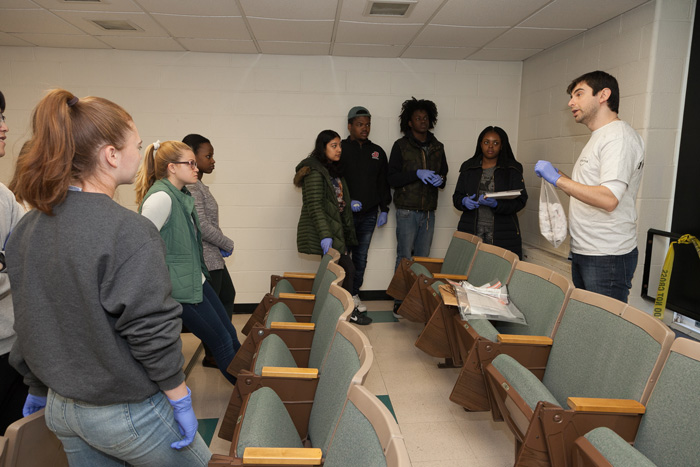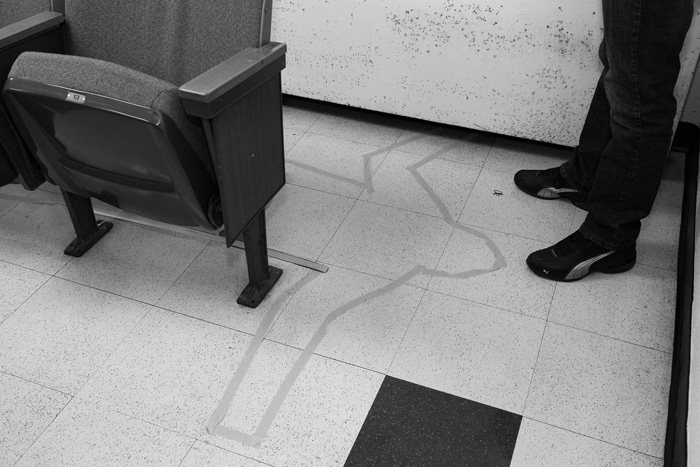Forensic Files (the Biology Class, Not the Show)

While the class syllabus mentioned that students would work on "real life" situations, they had no idea they'd be taking on elements of a crime scene for an exercise. At right, Visiting Assistant Professor of Biology Nik Tsotakos walks students through the scenario at hand. Photos by Carl Socolow '77.
Biology students examine a staged crime scene to explore a wide array of scientific fields
by Tony Moore
When the liberal arts and sciences do a deep dive into the sciences, with a unique multidisciplinary approach, a classroom might just become a staged crime scene, replete with police tape and the outline of a murder victim on the floor. And that’s just the sight that surprised students when they recently showed up for their regularly scheduled biology course, Topics in the Molecular Basis of Disease.
“I have always been fascinated by forensic science, as it involves several different scientific disciplines, like molecular biology, chemistry, toxicology and entomology,” says Nik Tsotakos, visiting assistant professor of biology, who taught students some basic forensic science techniques last semester before springing the crime scene on them in the spring. “This way, the students will learn techniques such as microscopy, chromatography and PCR (polymerase chain reaction)—and their usefulness in real-life scenarios and the difficulties scientists face in their day-to-day lives.”

The exercise was built to have students follow the necessary procedures, so as not to contaminate anything, and collect all samples that may contain useful information. And, Tsotakos admits, an exercise like this is a great way to pique student interest in the material.
“I think this activity highlights the interdisciplinary character of biology and forces students to think critically about the importance of general classroom concepts throughout the stages of an investigation," says Abigail Brickler '21 (biology, environmental science). "Ultimately, the activity adds a different dimension to lecture material, with the hands-on approach prompting an additional appreciation for the text and information.”
TAKE THE NEXT STEP
Published April 9, 2018